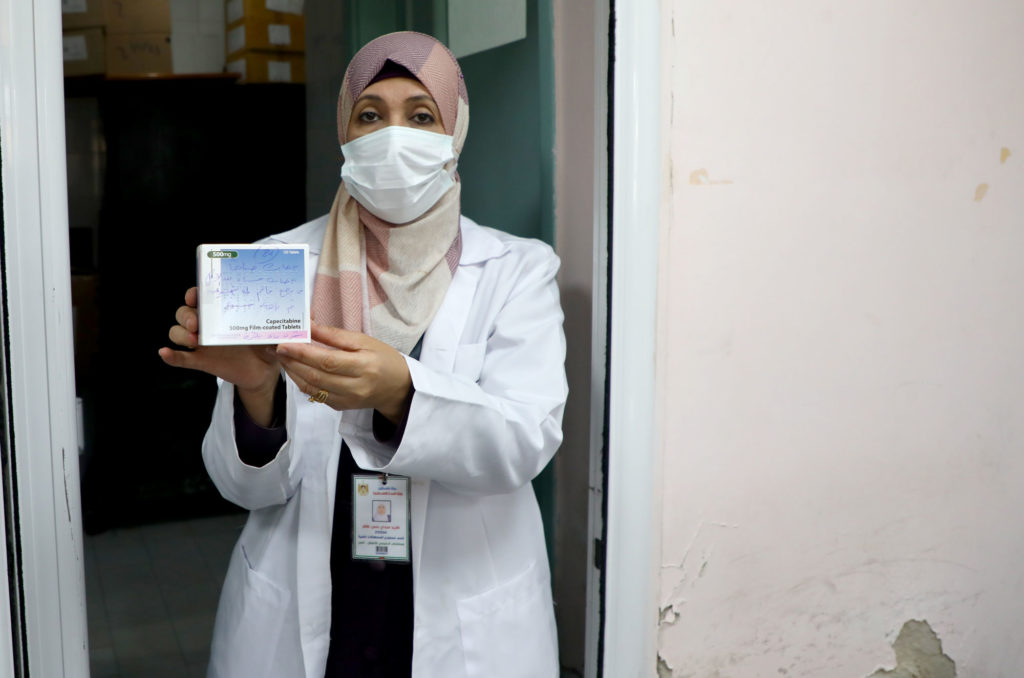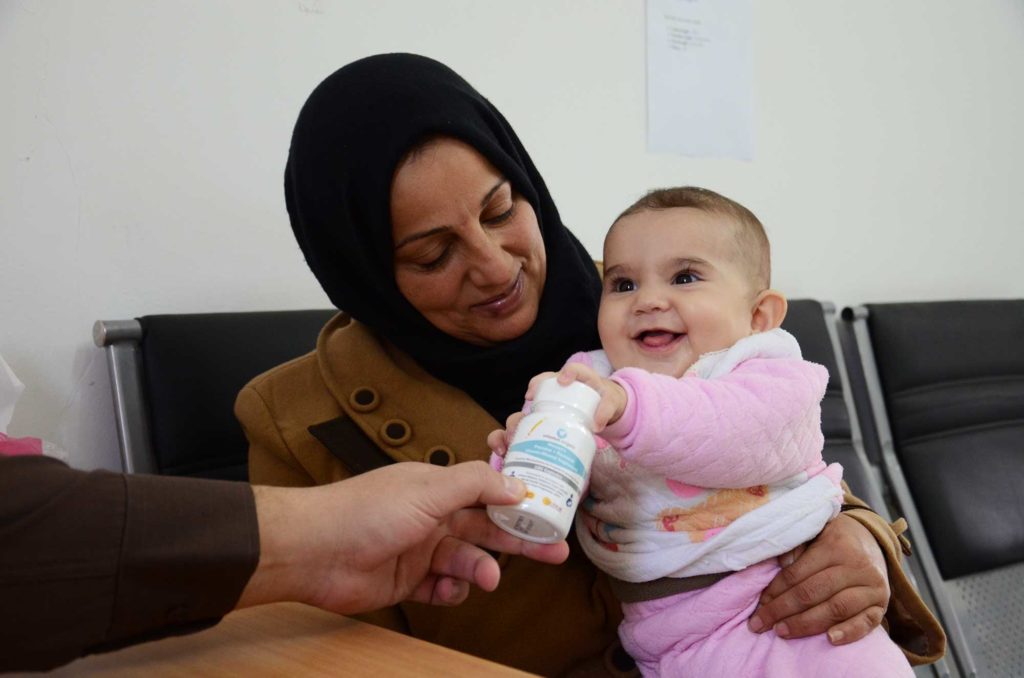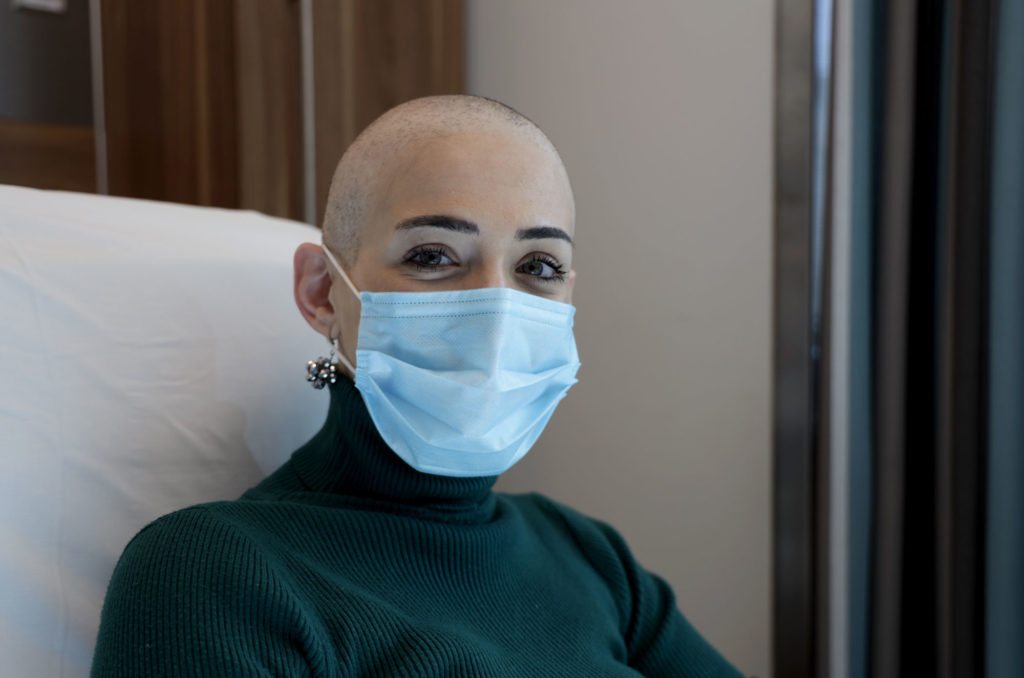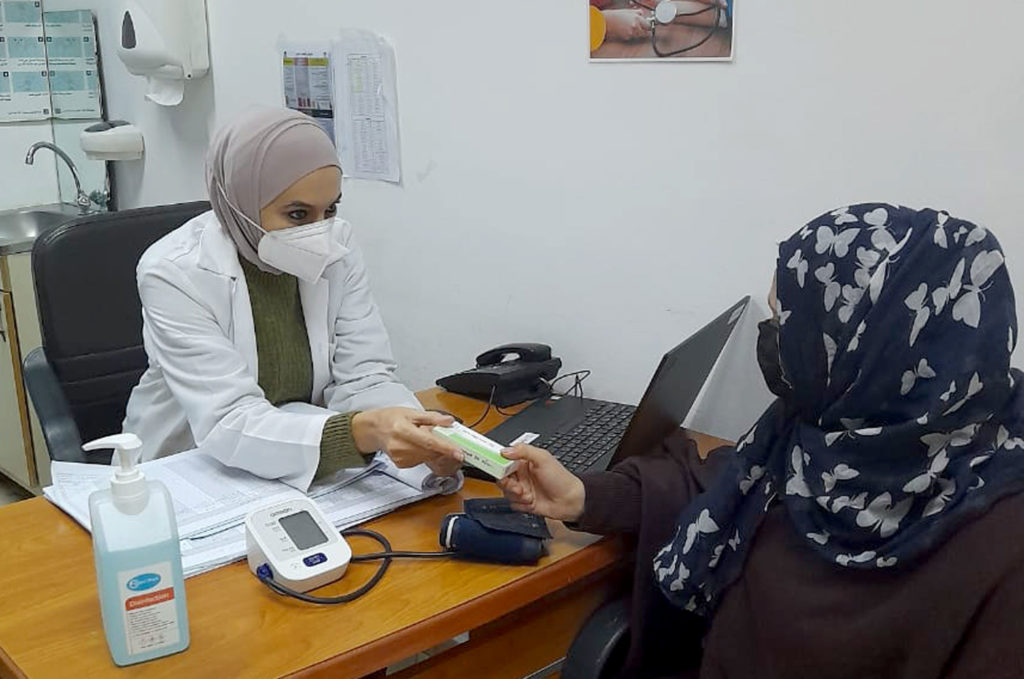The Unique Health Challenges Women Face in Palestine, Lebanon, and Jordan
Posted in: About Anera, Days of Observance
Maternal, breast and reproductive health are just some of the top priorities to ensure women live a quality life. Yet, marginalized communities in Palestine, Lebanon and Jordan have trouble accessing the quality care they need. Women’s health can easily fall by the wayside when medications and clinics are expensive or inaccessible, which can lead to devastating outcomes.
In recognizing the unique needs of women in Palestine, Lebanon and Jordan, we’re delivering many programs to help address all facets of the issue. From providing cancer treatments and improving the infrastructure of medical clinics to delivering prenatal vitamins, Anera helps women, including refugees living in dire conditions, receive the care they need.
Women’s Health in Palestine
Women in Palestine face unique obstacles when it comes to accessing quality healthcare. Palestinians endure restrictions on movement and resources, facing barriers to accessing treatment both inside and outside of the Palestinian territories.
While women’s health encompasses a range of care, the needs that stand out the most in Palestine are breast cancer treatments and maternal healthcare. Though breast cancer can affect both men and women, in Palestine, the overwhelming majority of diagnoses are found in women. In 2016, 60% of breast cancer deaths in Palestine were premature and could have been prevented if effective screening, early detection and a referral pathway were in place.
In terms of maternal healthcare, the majority of pregnant women seen in clinics in Palestine suffer from severe vitamin deficiencies and anemia. As a result, the women’s quality of life is extremely poor and the health of their babies is put in danger.


Anera works to alleviate both of these issues in Palestine. Through generous medical aid donations, we distribute capecitabine tablets. Capecitabine is a medication used to treat multiple forms of cancer, including breast cancer. In 2022, we delivered 24,000 tablets to Shifa Hospital, which provided it to financially disadvantaged patients at no charge.
Anera also donates prenatal vitamins to clinics in Palestine. Through Anera’s longstanding partnerships with highly reliable medical facilities, we deliver prenatal vitamins and other medications to vulnerable communities throughout the West Bank and Gaza. Without donations, the cost of the prenatal vitamins is a major barrier for women in need, and is a heavy burden for expecting mothers. With Anera’s help, mothers suffering from vitamin deficiencies and anemia are able to receive the much-needed medication at no cost at all.


Dr. Jawareesh, a doctor at a clinic in the village of Dar Salah says, “Through your donations, be it multivitamins or antibiotics or chronic disease medications, we can take care of [women’s] health, allowing them to turn their attention to their own development and their kids’ future.”
Women’s Health in Lebanon
Nextdoor, in Lebanon, residents are experiencing one of the world’s worst economic crises in history. As a result, the country’s public health sector is on the brink of collapse.
Hospitals are running out of medicine and doctors and nurses are leaving their jobs in large numbers – all due to the extreme devaluation of Lebanon’s currency and the country’s current inability to provide basic needs and resources.
An aspect of this healthcare crisis is the overwhelming need for cancer medication. The most prevalent form of cancer in the region is breast cancer, which affects nearly 40% of cancer-diagnosed women in Lebanon.
To address the issue, Direct Relief and Anera have been working closely to ensure the delivery of life-saving medication, such as chemotherapy, to where it is needed most. Direct Relief recently sent two shipments that our teams delivered to the American University of Beirut Medical Center.


The delivery of these medications has helped women throughout Lebanon. One of the patients benefiting from these shipments is 27-year-old Thuraya, a bright and resilient young woman fighting breast cancer. Thanks to the treatment delivered by Anera, she can receive chemotherapy. “I thank God, because my condition has stabilized and I am now feeling better.” Thuraya says, “I am a mother so I have to be able to take care of my children.”
Women’s Health in Jordan
Jordan is currently enduring a period of economic hardship, putting pressure on healthcare providers that are now struggling financially with the burden of continuing to support patients with chronic illnesses. This is especially the case for vulnerable Jordanian populations and refugees, many of whom cannot afford on-going treatment. In a study done by the UNDP, 70% of Jordanians reported inadequate access to basic healthcare, with 63% saying they don’t know where to turn for support.
Thanks to a generous medical donation from International Health Partners, Anera is reaching thousands of female patients in Jordan who are now receiving treatments that they otherwise could not afford.
The donated medications are now treating thousands of patients with a wide range of chronic illnesses such as hypertension, diabetes, upper respiratory tract infections and urinary tract infections. The results from the donation are life-changing.
One recipient with polycystic ovarian syndrome struggled with infertility. She had been trying to conceive for years. Her frustration with not being able to have more children was coupled with feelings of guilt and depression.


After two months of treatment donated by Anera and counseling provided by the doctor, the patient’s menstrual cycle was regulated and her symptoms improved. Not long after, she finally became pregnant. The patient is overjoyed that she is now able to successfully manage her condition and conceive.
In times of catastrophe, such as bombings in Gaza and economic hardship in Lebanon and Jordan, disparity and lack of access to healthcare treatment is exacerbated. For many women, this means missing out on the medications and treatments they need to live with dignity and, in some cases, survive. With help from our supporters, we can ensure that women receive the medications they need to live the quality of life that they deserve.
OUR BLOG
Related
Part of a series on the impact of the war on all sectors of economic life within Gaza, Anera’s immediate response and plans for the future. Other posts cover housing, education, WASH, health and food production systems. Livelihood Recovery In Gaza, 57 years of occupation and…
InterAction and 50 Member CEOs, some of whom have organizations that work in Gaza, urge President Biden to take decisive and actionable steps to alleviate the humanitarian crisis in Gaza. Detailed within this letter are specific steps and commitments that…


